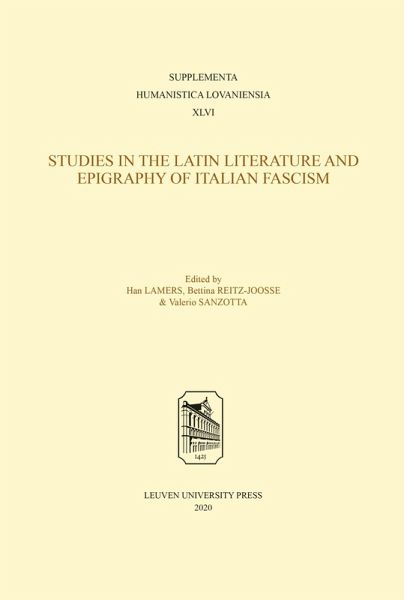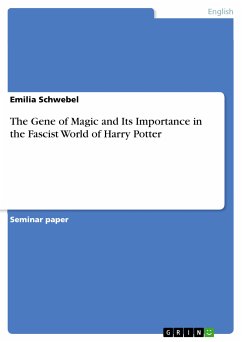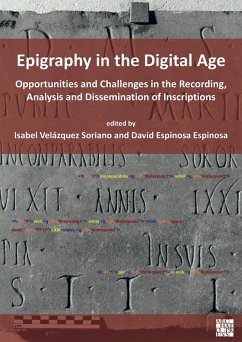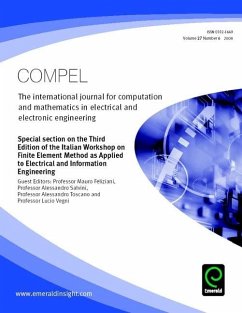
Studies in the Latin Literature and Epigraphy of Italian Fascism (eBook, PDF)

PAYBACK Punkte
23 °P sammeln!
Firstcollected volume dealing with the use of Latin under FascismThis book deals withthe use of Latin as a literary and epigraphic language under Italian Fascism(1922-1943). The myth of Rome lay at the heart of Italian Fascist ideology, andthe ancient language of Rome, too, played an important role in the regime's culturalpolitics. This collection deepens our understanding of 'Fascist Latinity',presents a range of previously little-known material, and opens up a number ofnew avenues of research. The chapters explore the pivotal role of Latin inconstructing a link between ancient Rome and Fasci...
Firstcollected volume dealing with the use of Latin under Fascism
This book deals withthe use of Latin as a literary and epigraphic language under Italian Fascism(1922-1943). The myth of Rome lay at the heart of Italian Fascist ideology, andthe ancient language of Rome, too, played an important role in the regime's culturalpolitics. This collection deepens our understanding of 'Fascist Latinity',presents a range of previously little-known material, and opens up a number ofnew avenues of research. The chapters explore the pivotal role of Latin inconstructing a link between ancient Rome and Fascist Italy; the differentsocial and cultural contexts in which Latin texts functioned in the ventennio fascista; and the way in which'Fascist Latinity' relied on, and manipulated, the 'myth of Rome' of latenineteenth- and early twentieth-century Italy. Contributors: William Barton (Ludwig Boltzmann Institute for Neo-LatinStudies), Xavier van Binnebeke (KU Leuven), Paolo Fedeli (Università degliStudi di Bari Aldo Moro), Han Lamers (University of Oslo), Johanna Luggin(Ludwig Boltzmann Institute for Neo-Latin Studies), Antonino Nastasi (Rome),Bettina Reitz-Joosse (University of Groningen), Dirk Sacré (KU Leuven), ValerioSanzotta (Ludwig Boltzmann Institute for Neo-Latin Studies), Wolfgang Strobl(Toblach).
This book deals withthe use of Latin as a literary and epigraphic language under Italian Fascism(1922-1943). The myth of Rome lay at the heart of Italian Fascist ideology, andthe ancient language of Rome, too, played an important role in the regime's culturalpolitics. This collection deepens our understanding of 'Fascist Latinity',presents a range of previously little-known material, and opens up a number ofnew avenues of research. The chapters explore the pivotal role of Latin inconstructing a link between ancient Rome and Fascist Italy; the differentsocial and cultural contexts in which Latin texts functioned in the ventennio fascista; and the way in which'Fascist Latinity' relied on, and manipulated, the 'myth of Rome' of latenineteenth- and early twentieth-century Italy. Contributors: William Barton (Ludwig Boltzmann Institute for Neo-LatinStudies), Xavier van Binnebeke (KU Leuven), Paolo Fedeli (Università degliStudi di Bari Aldo Moro), Han Lamers (University of Oslo), Johanna Luggin(Ludwig Boltzmann Institute for Neo-Latin Studies), Antonino Nastasi (Rome),Bettina Reitz-Joosse (University of Groningen), Dirk Sacré (KU Leuven), ValerioSanzotta (Ludwig Boltzmann Institute for Neo-Latin Studies), Wolfgang Strobl(Toblach).
Dieser Download kann aus rechtlichen Gründen nur mit Rechnungsadresse in A, B, BG, CY, CZ, D, DK, EW, E, FIN, F, GR, HR, H, IRL, I, LT, L, LR, M, NL, PL, P, R, S, SLO, SK ausgeliefert werden.













